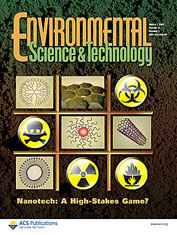
Bell Labs is an American industrial research and development (R&D) company, currently operating as a subsidiary of Finnish technology company Nokia. With a long history, Bell Labs is credited with the development of radio astronomy, the transistor, the laser, the photovoltaic cell, the charge-coupled device (CCD), information theory, the Unix operating system, and the programming languages B, C, C++, S, SNOBOL, AWK, AMPL, and others, throughout the 20th century. Eleven Nobel Prizes and five Turing Awards have been awarded for work completed at Bell Laboratories.
Color science is the scientific study of color including lighting and optics; measurement of light and color; the physiology, psychophysics, and modeling of color vision; and color reproduction. It is the modern extension of traditional color theory.
Educational technology is the combined use of computer hardware, software, and educational theory and practice to facilitate learning. When referred to with its abbreviation, "EdTech", it often refers to the industry of companies that create educational technology. In EdTech Inc.: Selling, Automating and Globalizing Higher Education in the Digital Age, Tanner Mirrlees and Shahid Alvi (2019) argue "EdTech is no exception to industry ownership and market rules" and "define the EdTech industries as all the privately owned companies currently involved in the financing, production and distribution of commercial hardware, software, cultural goods, services and platforms for the educational market with the goal of turning a profit. Many of these companies are US-based and rapidly expanding into educational markets across North America, and increasingly growing all over the world."

Technology and Culture is a quarterly academic journal founded in 1959. It is an official publication of the Society for the History of Technology (SHOT), whose members routinely refer to it as "T&C". Besides scholarly articles and critical essays, the journal publishes reviews of books and museum exhibitions. The journal occasionally publishes thematic issues; topics include patents, gender and technology, and ecology. Technology and Culture has had three past editors-in-chief: Melvin Kranzberg (1959–1981), Robert C. Post (1982–1995), and John M. Staudenmaier (1996–2010). From 2011 to 2021, the journal was edited at the University of Oklahoma by Suzanne Moon. Its current editor in chief is Ruth Oldenziel at the Eindhoven University of Technology. Managing editors have included Joan Mentzer, Joseph M. Schultz, David M. Lucsko, and Peter Soppelsa.
The Science Citation Index Expanded is a citation index originally produced by the Institute for Scientific Information (ISI) and created by Eugene Garfield.
Diving Science and Technology is a corporate affiliate of the Professional Association of Diving Instructors (PADI) and the developer of the Recreational Dive Planner. DSAT has held scientific workshops for diver safety and education.
Metelimumab (CAT-192) is a human IgG4 monoclonal antibody that neutralizes TGF beta 1 which had been chosen for further development for the treatment of diffuse cutaneous systemic sclerosis, also known as scleroderma. It was dropped from further development in favour of fresolimumab, which was being developed by Genzyme as of 2006.
TechRepublic is an online trade publication and social community for IT professionals, providing advice on best practices and tools for the needs of IT decision-makers.
The Journal of Vacuum Science and Technology is a peer-reviewed scientific journal published in two parts, A and B, by the American Institute of Physics on behalf of the American Vacuum Society. It was established in 1964 and the editor-in-chief is Eray Aydil.

Environmental Science & Technology is a biweekly peer-reviewed scientific journal published since 1967 by the American Chemical Society. It covers research in environmental science and environmental technology, including environmental policy. Environmental Science & Technology has a sister journal, Environmental Science & Technology Letters, which publishes short communications.

Astrobiology is a peer-reviewed scientific journal covering research on the origin, evolution, distribution and future of life across the universe. The journal's scope includes astrobiology, astrophysics, astropaleontology, bioastronomy, cosmochemistry, ecogenomics, exobiology, extremophiles, geomicrobiology, gravitational biology, life detection technology, meteoritics, origins of life, planetary geoscience, planetary protection, prebiotic chemistry, space exploration technology and terraforming.
Science and technology in Asia is varied depending on the country and time. In the past, among Asian civilizations considered particularly notable for their contributions to science and technology were India, China and the West Asian civilizations. Countries such as Japan, South Korea, and Taiwan are recently known for technology, while China and India are also major contributors to science and technology. Other countries are also notable in other scientific fields such as chemical and physical achievements. For the science and technology of various Asian countries and civilizations, see:
The Rutgers Computer and Technology Law Journal, founded in 1969 at Rutgers School of Law–Newark, is the world's oldest and longest running academic journal dealing with the interaction of law and technology. It is a student-run, law review–style publication, and two issues are published each year. The journal's staff is selected through a writing competition held at the end of each academic year.
The Journal of Technology Law & Policy is a law review devoted to discussion and analysis of the legal implications of technology. Topics include, but are not limited to patents, copyrights, trademarks, trade secrets, antitrust, information privacy, and computer law. The journal was established in 1995 and is published twice yearly by the University of Florida Levin College of Law.
The Pittsburgh Journal of Technology Law & Policy is a biannual law review covering legal topics involving intellectual property and technology.

Plasma is one of four fundamental states of matter characterized by the presence of a significant portion of charged particles in any combination of ions or electrons. It is the most abundant form of ordinary matter in the universe, mostly in stars, but also dominating the rarefied intracluster medium and intergalactic medium. Plasma can be artificially generated, for example, by heating a neutral gas or subjecting it to a strong electromagnetic field.
GeekWire is an American technology news website that covers startups and established technology companies. The site launched in March 2011 and is based in Seattle. It was founded by journalists Todd Bishop and John Cook with investment from Jonathan Sposato.




